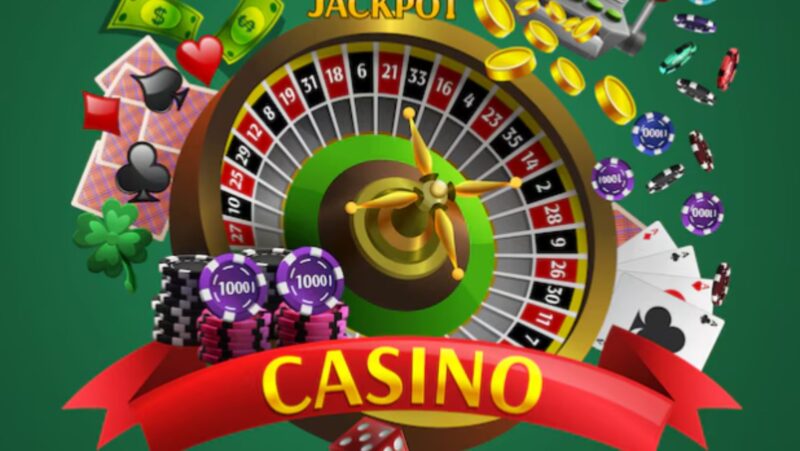
The digital age has introduced countless ways to engage our brains through interactive entertainment, yet classic pastimes like playing card games still possess a timeless appeal. Beyond the simple pleasure of shuffling and dealing, these games offer cognitive benefits that support mental agility and health. Topping the list of such games is free classic Solitaire. This game has transcended its physical form to become a favorite digital mental workout for many, providing a quintessential blend of entertainment, challenge, and cognitive enhancement.
In a world often cluttered with overwhelming information and technologies, enjoying a game of Solitaire has become more than a means to pass the time. It is, in its essence, an active investment in cognitive wellness. With its well-documented benefits for memory, problem-solving, and stress reduction, Solitaire embodies a perfect juxtaposition of simplicity and mental stimulation. In recognizing these benefits, players around the globe continue to embrace card games as a vital ingredient in the recipe for a healthy, balanced brain.
Key Takeaways:
- Enhanced cognitive skills, including problem-solving and strategic thinking, arise from regular card game practice.
- Playing Solitaire may contribute uniquely to stress relief and mental focus, facilitating flow and improved concentration.
- A daily routine involving Solitaire could provide balanced mental stimulation and overall emotional well-being.
The Cognitive Science Behind Solitaire
Solitaire is not just a game of leisure—it is a sophisticated exercise for the mind, involving a symphony of cognitive processes that include executive function, visual perception, and memory. Playing Solitaire stimulates the brain’s prefrontal cortex, which governs our ability to plan, organize, and make decisions. As each card is turned, the player is continually presented with a dynamic puzzle that requires the evaluation of multiple options and subsequent strategies. Predicting outcomes while abstractly planning several moves encourages the growth of new neural connections, fostering cognitive resilience and flexibility.
Solitaire as a Tool for Memory Improvement
Memory enhancement through gameplay is a fascinating aspect of Solitaire. The game prompts players to recall specific rules, the location of cards, and potential sequences—all critical working memory elements. This practice not only cultivates a sharper mind but can also serve as a preventive measure against memory-related ailments. Challenging one’s mind with Solitaire may potentially delay the cognitive decline associated with aging, providing a fun and accessible way to exercise the brain regularly. Research published in respected sources like Psychology Today showcases how engaging in such cognitive tasks can be advantageous for maintaining mental agility over time.
Stress Reduction Through Solitaire
The mental reset offered by a game of Solitaire cannot be overstated. Amid the hustle and bustle of modern life, finding moments of tranquility can be a challenge. Solitaire serves as a peaceful refuge, promoting mindfulness and maintaining cognitive elasticity. The strategic and paced nature of the game encapsulates the player in a meditative zone where anxieties can be alleviated, which, as suggested by findings on ScienceDaily, can be delightful for those seeking reprieve from the stressors of daily life. The game’s ability to draw in the player supports a calm and centered mental state, equipping them to navigate life’s ups and downs with more resilience and composure.
Solitaire’s Impact on Concentration and Focus
Maintaining focus can feel nearly impossible in the age of continuous notifications and multitasking. Yet, Solitaire offers a unique remedy to this modern-day challenge. Engaging in a game of Solitaire demands sustained attention and focus.

Each decision has a ripple effect, compelling players to stay in the moment and proceed with purpose and careful thought. Over time, this repeated practice can improve one’s ability to concentrate in other areas, translating Solitaire’s lessons into valuable life skills that boost productivity and efficiency.
Problem-Solving Skills Gained from Solitaire
Life is an unending puzzle filled with hurdles, much like a game of Solitaire. Players are figuring out how to align cards in sequences and flexibly adapt to new situations with every game. Each new deal represents a different puzzle, making problem-solving an inherent game trait. This ethos encourages a growth mindset and presses the mind to solve problems creatively. Gleaned from the game, these problem-solving skills cross over into everyday life, helping players approach complex situations with strategic thinking and a level of calmness honed through thoughtful gameplay.
Despite its solitary nature, Solitaire can inadvertently enhance social interactions. The mental discipline developed through strategic gameplay is invaluable for patience and composure—qualities that directly translate to better social experiences and interactions. For those who share a passion for card games, Solitaire can also spark engaging conversations and deepen connections with others. On the emotional front, the fulfillment that comes from completing a game can instill a rewarding sense of achievement and boost self-esteem, which can positively impact one’s mood and outlook on life.
Advanced Strategies in Solitaire for Brain Training
Advanced Solitaire players seek out variations that introduce new rules and complexities, thereby increasing the mental demands of the game. Mastering these heightened challenges requires incredible foresight, adaptability, and creative problem-solving. Rigorous brain training such as this can exponentially increase cognitive abilities. Players often report that the satisfaction of overcoming more brutal Solitaire games brings a heightened sense of intellectual fulfillment and bolsters their skills in resolving daily life tasks with enhanced mental talent and innovation.
Comparing Solitaire to Other Brain Training Games
While numerous brain training games claim to enhance various cognitive functions, Solitaire presents a unique proposition. Its simple mechanics mask a deep reservoir of strategic depth and mental benefits. Unlike many digital games that can feel impersonal and isolating, Solitaire retains a sense of tradition and tangible engagement when played with physical cards.

Nevertheless, digital versions of the game offer accessibility and convenience, allowing for a cognitive workout at any time and place. This balance positions Solitaire favorably among other brain training options, making it a preferred choice for those seeking comprehensive mental exercise.
Integrating Solitaire into a Healthy Brain Lifestyle
A successful brain health regimen involves consistent practice and variety. Integrating Solitaire into one’s daily routine is straightforward and enjoyable: from a morning game that serves as a cognitive warm-up to a nightly unwind before bed. Favorably, the versatility of Solitaire—available in both digital and physical card forms—makes it an accessible tool for cognitive enhancement. This adaptability allows players to fit the game seamlessly into their lives, fostering a sustainable and pleasurable habit that supports brain health. By making Solitaire a consistent part of one’s lifestyle, the benefits are bound to manifest in improved memory, focus, and emotional well-being.
Cards in hand, whether virtual or physical, players of Solitaire experience a cognitive tune-up that is as refreshing as enjoyable. As they navigate through the game’s complexities, they unknowingly contribute to the longevity and vitality of their mental faculties—a worthy outcome from a deck of cards.












